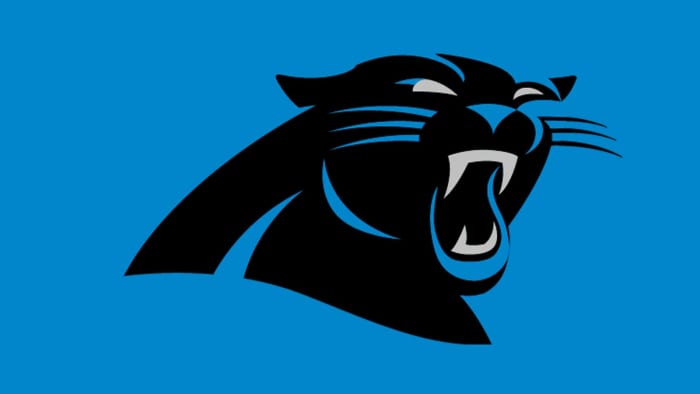*(EDITOR'S NOTE: This is the second installment in an ongoing series detailing how the Carolina Panthers' college scouting staff goes about its year-long process of evaluating future prospects for the franchise. Read the first installment here.)
*
Don Gregory, director of college scouting for the Panthers, has been many places and forged many relationships throughout his lengthy and distinguished career as a talent evaluator in football.
The territory he covers is huge, covering the whole of the United States. He even has eyes out for talent in Europe. You get the feeling if a player who could run a 4.4 40-yard dash emerged in the heart of Siberia in the outermost reaches of Russia, Gregory somehow would get word of him.
The network of coaches, scouts, general managers and no-nonsense football men who have helped Gregory get to where he is today seems no less vast than this territory he must comb to help the Panthers find the young men who fuel the franchise's future.
"I've just been blessed to have college coaches I've known who became coaches in the NFL or scouts in the NFL, and all types of personnel people," Gregory said. "It's like a fraternity, and we all stay in touch with one another."
Gregory's path to the fraternity is as winding as it is interesting.
Born in Pearl City, Hawaii, where his father was an engineer in the Air Force before working in the national security field, Gregory moved with his family first to California and then to Great Falls, Montana, where he played football throughout middle school and high school.
He says now that he never minded moving around as a kid, and insists, in fact, that it helped prepare him for his future life as a scout who travels constantly during the college football season.
"I just remember driving from one state to another, so absolutely," said Gregory, grinning. "You know what? I think when you have as many experiences as I did like that, I think it helps you develop your character. I was blessed to be able to see a different culture than what I was used to. I looked at it that way."
He finished his own playing career in 1979 at Whitworth College (now Whitworth University) in Spokane, Wash. But he also played at Portland State, where one of his teammates was quarterback June Jones, who subsequently went on to coach at various colleges and in the NFL. The Whitworth coach was Mouse Davis, who is widely credited with helping create the run-and-shoot spread offense, versions of which many college and pro teams still use today.
"I still stay in touch with Mouse. He's up in Portland still," Gregory said.
Of course he does. That's one thing Gregory has learned over the years. Whenever he comes across a fellow football man he can bounce ideas off, he stays in touch.
For this and many other tools of the trade he developed along the way, Gregory credits Gene Bates, a former coach-turned-scout who spent many years on the road as an evaluator for the Washington Redskins among others. Gregory calls Bates his mentor and says Bates is the reason he ended up as a scout.
"He's just a great guy," Gregory said of Bates. "I've known Gene since junior college when I was playing at Wenatchee (Valley College). I played against him, and we got to know each other over the years. He went to scout for the Redskins, and we just kept in contact.
"He basically taught me the fundamentals of scouting. I was coaching high school football for eight years and kept in contact with Gene. He was instrumental in my transition into scouting, as well as my development as a scout."
Gregory coached high school football in Washington after graduating from college, but he already was beginning to learn the intricacies of becoming a scout through a part-time position with the Edmonton Eskimos of the Canadian Football League. He worked for Hugh Campbell, a former Whitworth College coach who by then was head coach of the Eskimos (Campbell would later coach the Houston Oilers in the NFL).
"Hugh Campbell recruited me when I was 18, 19 years old," Gregory said. "He won five Grey Cups up in Canada with Warren Moon as his quarterback. During that time, I was doing some northwest scouting for Hugh. I would coach Monday through Friday at the high school. Saturdays we would have meetings. And then on Sundays, I would do some scouting for Hugh."
He worked with the Eskimos from 1986 through 1990. Then Gregory became northwest scout for the San Antonio Rough Riders in the World League of American Football, where he worked for general manager John Peterson. Today Peterson is an area scout for the Panthers, in charge of scouting the southeast.
"So John and I go way back," Gregory said. "Actually, John was the coach at Frostburg State – and I always rib him about this – but I was just getting out of college and looking to be a GA (graduate assistant), and I sent him my resume. And I said to him later, 'John, you rejected my resume. I was going to be one of your assistant coaches.' I razz him about that, because if he had hired me then, we would go even farther back than we do now.
"But I worked for John when he was the general manager of the Rough Riders, and Mike Riley, who I worked for in Winnipeg, was head coach of the San Antonio Rough Riders. He's a good friend today, too. So it is really a small world with your connections."
However small it may seem to Gregory, his scouting universe throughout his career has seemed to be ever-expanding with valuable contacts. He later returned to work in the CFL for Campbell, who by then had become general manager, and also scouted for the Winnipeg Blue Bombers of the CFL for two years.
Gregory broke into the NFL in 1995 as a scout with the San Diego Chargers, where he worked on a staff that included Marty Hurney. He remained with the Chargers until 1999, made a brief switch to director of player personnel for the Las Vegas Outlaws of the short-lived XFL, and then bounced back into the NFL as a scout for the Kansas City Chiefs.
Even during his short stint in the XFL, Gregory kept making contacts that would serve him well down the road.
"Jim Criner was at Boise State and won the (NCAA Division I-AA) national championship there. Jim and I became real close, and I was blessed to work with Jim (who was head coach of the Outlaws)," Gregory said. "I learned a lot from him. He's an old offensive line coach. He's a grinder. He's over in the World League now in Europe, doing a basic fundamentals league in France. He's a good man and someone I keep in close contact with."
Gregory also stayed in touch with Hurney after Hurney left the Chargers. When Hurney, then general manager of the Panthers, was looking for a new director of college scouting in 2006, he gave Gregory the call that brought the veteran scout to Carolina.
You might say all his hard work – but also all his many contacts that he's made through the years – finally paid off. Since then, Gregory has endeared himself to Panthers owner Jerry Richardson and new general manager Dave Gettleman by spearheading the evaluation of college talent that has led to several productive drafts.
When quarterback Cam Newton was named NFL Offensive Rookie of the Year in 2011 and linebacker Luke Kuechly was named NFL Defensive Rookie of the Year in 2012, it was the ultimate validation of the work put in by Gregory and his staff.
"I think I've been blessed with being able to evaluate players," Gregory said. "I think the Good Lord blessed me that way, and that's what I like doing. I like finding players who have potential, and nowadays you kind of look at them as a raw body of clay that our great coaching staff can mold into a player."
There is one other secret to Gregory's success as he crisscrosses the country and works his contacts for information about players.
"You know, it's funny," he said. "I'm not a big sleeper. I can function on six hours. I'm a good sleeper on planes. I'm one of those people who can get that cat nap on a plane and feel rejuvenated. That's a key, too."















